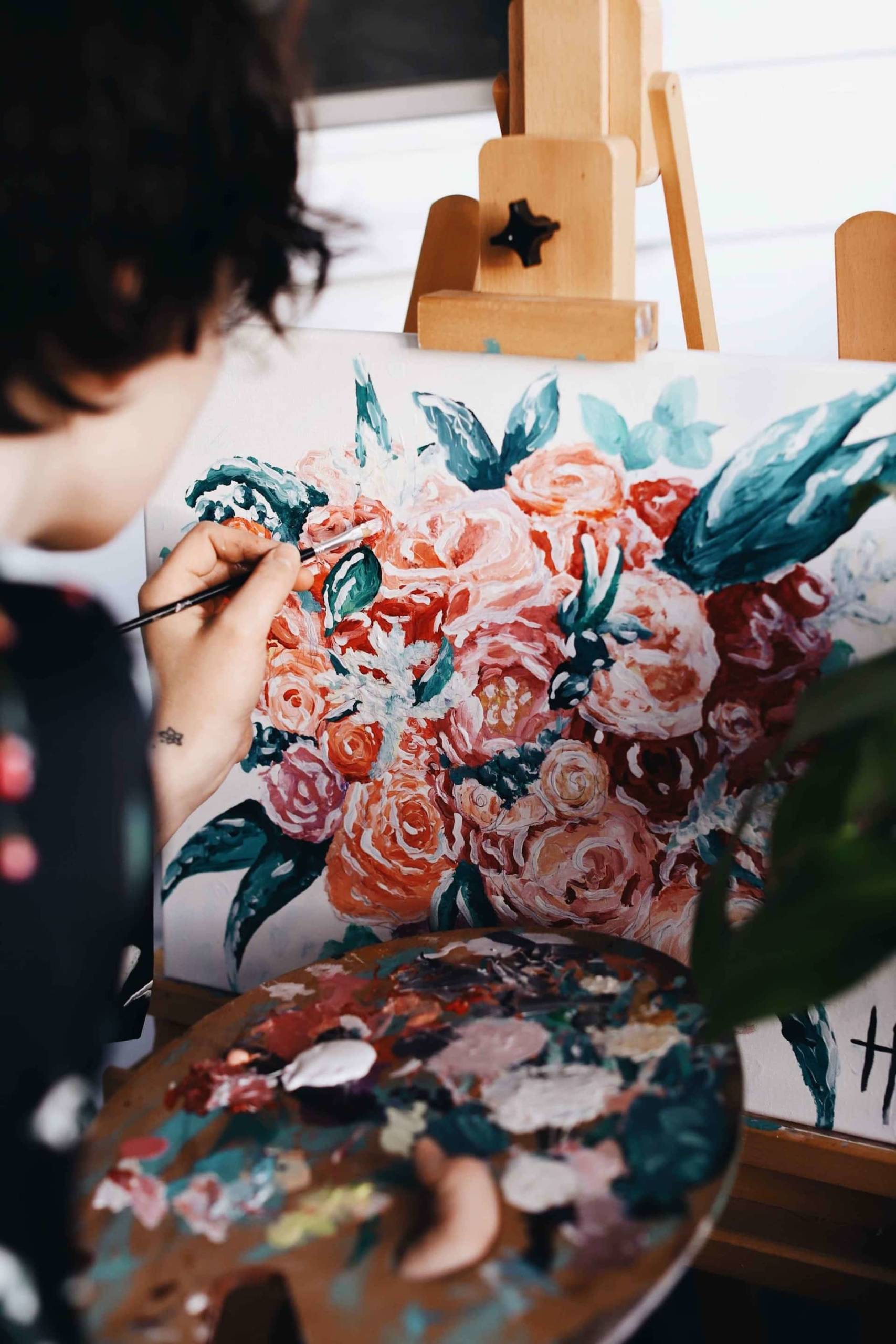
Mental Health Benefits of Art Therapy
You might have heard of art therapy, but do you know what it truly is? The American Art Therapy Association explains that art therapy is an integrative mental health and human services profession that can help enrich people’s lives through active art-making and the creative process.
Art therapists are trained to facilitate this form of therapy to patients that can be beneficial for everyone spanning from small children and families to adults. That’s because art therapy has been proven to support personal and relational treatment goals and improve cognitive functions, self-awareness, and reduce stress. Of course, these aren’t the only positive outcomes it can provide.
Here are a few benefits art therapy can have on your mental health that you likely don’t know about.
8 Mental Health Benefits of Art Therapy
Art therapy can help people of all ages with both their cognitive and physical functions (like fine motor skills). For today, we are just focusing on the benefits of art therapy in mental health.
Enhance Self-Awareness
Art therapy is hands-on, allowing individuals to take control of their creativity and artwork. Through these exercises, they become very aware of how their actions contribute to the bigger picture of their project.
The arts, including drawing, painting, writing, also promote mindfulness that can help you connect with your environment, mind, and body in a peaceful way.
Emotional Release
Pent-up emotions can take a toll on your mental health. Whether you’re stressed, angry, sad, or even happy, it’s important to have an outlet for your emotions so you can release them in a healthy and safe way.
Professional Art Therapists have an entire toolbox of activities that can help serve as an emotional release. Whether it’s creating a stress painting, an emotion wheel, or journaling your emotions, art therapy can help clear your head and leave you feeling refreshed.
Stimulate Mental Function
Your cognitive functions can be affected by traumatic events, stress, and even illness. Michigan State University explained that in recent years, art therapy has been proven to stimulate mental function in older adults with dementia. Even if you don’t have this condition, activities that you do in art therapy can help relax your mind and spark creativity that stimulates your brain.
After a session of art therapy, you might be able to get over a mental block that has been holding you back at work or in your social life.
Reduce Social Anxiety
One of the main objectives of art therapy is to help you feel a sense of calm. This makes it a realistic treatment option for individuals with anxiety disorders or just general feelings of stress. Art therapy activities are naturally quiet, mindful, and meditative, which all evoke a calm feeling and can help soothe symptoms of stress and nervousness.
When your mind is calm, it’s better able to process your emotions and surroundings. By being aware of your inner and outer stimuli, you can feel in control of yourself and feel more peaceful throughout your day.
Create a Better Outlook
When your mental health is dulling your outlook on life, art therapy can help invigorate you once again. Creative activities can help you expand your mindset, improve your memory, and promote stress relief.
Improve Communication
Art therapy can help you learn how to better communicate with others by regulating your emotions and responses in healthy ways. In regard to mental health, it can also help you learn how to communicate with >yourself better.
The experts at rtor.org explained that the process of art creation is also a journey of self-discovery. You will gain a deeper understanding of your emotions and the best way to process them. You can also learn about how to better communicate with yourself in terms of your inner feelings and thoughts. Having the right internal communication style can drastically improve your mental health.
Develop Healthy Coping Mechanisms
What do you do when you’re feeling stressed or overwhelmed? Many times, our coping mechanisms for dealing with big feelings can be unhealthy and counteractive (even if we don’t realize it).
Art therapy can teach you new ways to cope with your emotions in a healthy way that promotes your well-being. Even after your art therapy sessions have ended, you can continue to use what you learned when you’ve become overwhelmed or simply to get through your day-to-day life.
Better Concentration
Individuals with ADHD or who want to improve their concentration can also benefit from art therapy. Most activities during your session will have you focus on just one task at a time. As you create art, you’re actually practicing patience and improving your concentration, both skills that are also important for work and life.
About Expressive Arts & Human Development at LIHSA
Long Island High School for the Arts is offering a concentration in Expressive Arts & Human Development. We understand the value art therapy can bring and how engagement with the creative arts can foster joy, restore self-confidence, improve mental and physical wellbeing, and contribute to improving the quality of life for everyone.
This unique program emphasizes developmental health across the lifespan and how it can intersect with the arts. Through additional genre-specific artistic coursework credit, students will build skill in technique classes in various artistic areas of interest making connections with different populations and building community.
Apply to our Visual & Performing Arts School today or request information to learn more!

